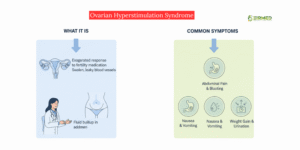Do Prenatal Vitamins Help Get Pregnant? The Science Explained
Do Prenatal Vitamins Help Get Pregnant? When you decide to start a family, your focus naturally shifts toward health and wellness. You might change your diet, adjust your exercise routine, and start looking into supplements. Among the most discussed are prenatal vitamins. This leads to a common and important question: do prenatal vitamins help you get pregnant? It’s a topic surrounded by a mix of hope, confusion, and misinformation.
This blog post will directly address that question. We will cut through the myths and explore the science behind prenatal vitamins and their role in your conception journey. Whether you are just beginning to think about pregnancy or are actively trying, understanding how these supplements work is a key part of your preparation.
The Science of Prenatal Vitamins and Fertility
To understand if prenatal vitamins can help with conception, we first need to look at what they are designed to do. A prenatal vitamin is a specially formulated multivitamin that provides the key nutrients an expectant mother and her developing baby need. Their primary purpose is to fill nutritional gaps and support a healthy pregnancy, not necessarily to act as a fertility treatment.
However, the nutrients inside these supplements play a critical role in reproductive health. A body that is well-nourished is better prepared for the demanding process of conception and pregnancy. Let’s look at the key components often found in these fertility supplements and how they contribute to your body’s readiness for pregnancy.
Key Nutrients and Their Role in Conception Support
- Folic Acid (Folate): This is arguably the most important nutrient for pregnancy preparation. Folic acid is a B vitamin that is essential for cell growth and development. Its most famous role is in preventing major birth defects of the baby’s brain and spine, known as neural tube defects. Because these defects can occur very early in pregnancy—often before a woman even knows she is pregnant—experts recommend taking folic acid before conception. While it doesn’t directly increase fertility, it ensures your body has the foundational building blocks for a healthy embryo from the moment of conception.
- Iron: Iron is crucial for producing hemoglobin, the protein in red blood cells that carries oxygen throughout your body. Before and during pregnancy, your body’s demand for iron increases significantly. Iron deficiency can lead to anemia, which has been linked to issues with ovulation and poor egg health. Ensuring you have adequate iron stores can help create a healthier environment for a potential pregnancy.
- Vitamin D: Often called the “sunshine vitamin,” Vitamin D is important for more than just bone health. Research suggests a link between Vitamin D levels and reproductive outcomes. It plays a role in hormone production and ovarian function. Some studies have shown that women with sufficient Vitamin D levels may have higher pregnancy rates, particularly those undergoing fertility treatments.
- Iodine: This mineral is vital for healthy thyroid function. Your thyroid hormones regulate metabolism, and an imbalance can interfere with your menstrual cycle and ovulation. Getting enough iodine before you conceive helps ensure your thyroid is working correctly, which is essential for both getting pregnant and supporting fetal brain development later on.
Addressing the Myth: Do Prenatals Boost Fertility?

So, let’s get to the core question: will taking a prenatal vitamin make you more fertile? The direct answer is no. Prenatal vitamins are not a magic pill that will increase your chances of getting pregnant overnight. They are not fertility drugs.
However, by creating an optimal nutritional environment in your body, they indirectly support the processes that lead to conception. Think of it like gardening. Tilling the soil and adding nutrients doesn’t guarantee a seed will sprout, but it creates the best possible conditions for it to do so.
What Experts Say
Most doctors and fertility specialists recommend that any woman of childbearing age who is considering pregnancy should start taking a prenatal vitamin. The consensus is not that it will act as a fertility aid, but that it is a fundamental step in responsible pregnancy preparation. By addressing potential nutritional deficiencies before you conceive, you improve your overall health, which in turn supports your reproductive system.
Breaking Down the Facts
- For the General Population: If you are a healthy individual with a regular menstrual cycle, prenatal vitamins will primarily serve to prepare your body for a healthy pregnancy. They ensure nutrient stores are full, which is beneficial but not a direct fertility booster.
- For Those with Deficiencies: If you have an underlying nutritional deficiency, such as low iron or Vitamin D, taking a prenatal vitamin could have a more noticeable impact. Correcting these deficiencies can help regulate ovulation and improve overall reproductive function, which may feel like a boost in fertility.
- A Piece of the Puzzle: Fertility is complex and depends on many factors, including age, genetics, lifestyle, and underlying medical conditions. Prenatal vitamins are just one supportive piece of a much larger picture.
Practical Advice and Actionable Takeaways
If you are trying to conceive, incorporating a prenatal vitamin is a wise and recommended step. Here is some practical advice to help you navigate your options.
How to Choose the Right Supplement
- Look for Key Ingredients: Ensure the prenatal you choose contains at least 400 micrograms (mcg) of folic acid. Other important nutrients to look for are iron, vitamin D, calcium, and iodine.
- Check for Third-Party Testing: Choose brands that have their products tested by an independent third party, such as NSF International or USP. This verifies that the supplement contains what the label says it does and is free from harmful contaminants.
- Consider Your Specific Needs: Some women may need different formulations. For example, if you have a history of anemia, you might need a prenatal with more iron. If you have the MTHFR gene mutation, you may need a supplement with methylated folate (L-methylfolate) instead of folic acid.
When to Consult a Doctor
This is the most important step. Before you start any new supplement regimen, talk to your healthcare provider. They can:
- Perform blood tests to identify any specific nutritional deficiencies.
- Recommend a prenatal vitamin that is right for you.
- Discuss other lifestyle factors that can impact your fertility.
- Help you understand if there are underlying issues affecting your ability to conceive.
Conclusion: A Proactive Step Toward a Healthy Pregnancy
While prenatal vitamins are not a direct fertility treatment, they are an essential tool for anyone planning a pregnancy. They work by creating the best possible nutritional foundation for conception and ensuring your body is ready to support a healthy baby from the very beginning. The main takeaway is this: taking a prenatal vitamin is a proactive, responsible step that supports your overall and reproductive health.
Instead of viewing them as a way to get pregnant, think of them as a way to prepare for pregnancy. By doing so, you are giving yourself and your future child a healthy head start.
For personalized advice tailored to your health and family goals, consult your healthcare provider to discuss the best path forward for you.

I manage fertility and pregnancy content at EIRMED and work closely with licensed fertility experts to ensure our articles are accurate, science-based, and trustworthy.

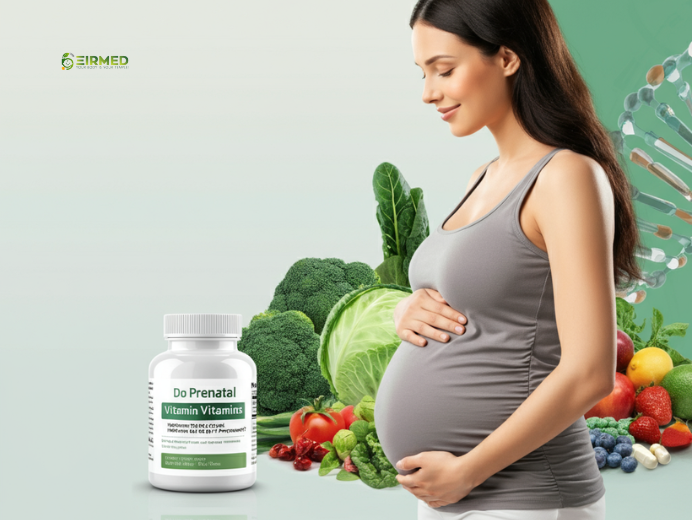
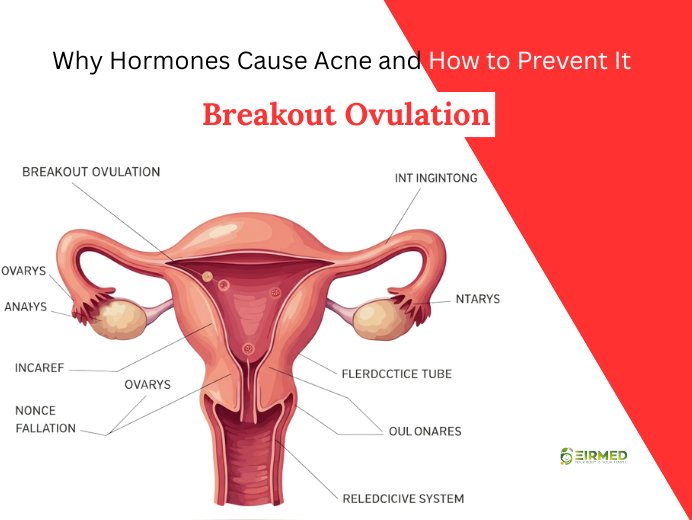
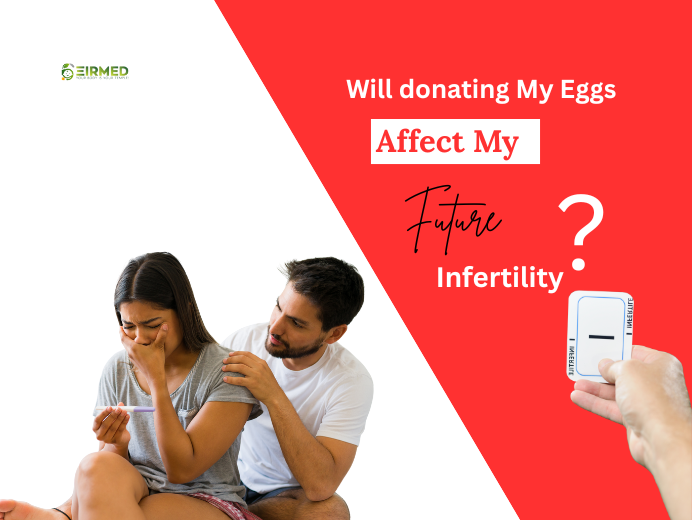
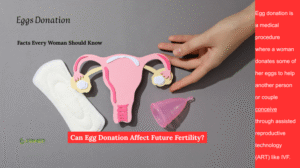
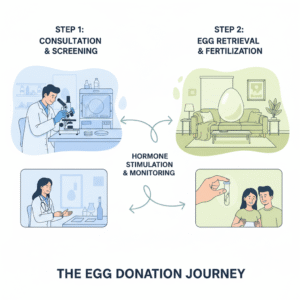 1. Screening and Medical Evaluation
1. Screening and Medical Evaluation